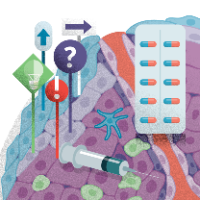Gamma–delta T cells in immuno-oncology: opportunity for next generation immune modulators
Immuno-Oncology Insights 2020; 6(2), 87–97
10.18609/ioi.2020.010
γδ-T cells are innate-like lymphocytes whose properties straddle both innate and adaptive immune responses. Among their diverse properties, they are potent killers of tumor cells. Infiltration of γδ -T cells into tumor microenvironments, which does not correlate with that of αβ -T cells, has been associated with favorable outcomes in hematological malignancies and solid tumors. Although there has recently been heightened interest in the potential of γδ -T cells for the treatment of cancers, it remains to be fully translated into the clinic. Among the approaches at various stages of development include autologous and allogeneic in vitro activated or re-engineered γδCAR-T cells, antibodies involved in the activation and/or priming of γδ-T cells including the γδ -TCR/CD3 complexes and butyrophilins (BTNs), and bispecifics with various tumor-associated antigens. A major focus of the various approaches has been the Vγ9Vδ2 subset which represents >80% of circulating γδ -T cells, although there is also a growing interest in the Vδ1 subset due to their preponderance in various tissues, including skin and gut. Among the BTN targets, the first antibody to BTN3A is in early stage clinical development, based on its potent and selective properties to activate Vγ9Vδ2 T cells to kill tumors in vitro and in vivo, and its encouraging preclinical safety profile. Prospects look promising that γδ -T cell-directed therapies can fill the gaps that cannot be satisfied by the large number of approaches targeting αβ-T cells, with potential for synergistic, combination approaches with existing immune checkpoint inhibitor therapies.
